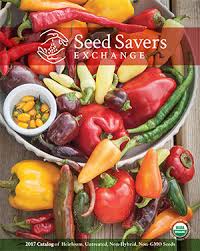
Seed Savers Exchange Launches Resilience Gardens Project
Free seeds available to all community members
(DECORAH, Iowa, May 4, 2020) What if you could walk out your back door and harvest fresh spinach, tomatoes, peppers, and peas from your own garden? What if you and your neighbor could easily share your harvests with one another? And what if you could acquire what you don’t have space to grow in your garden from a local food producer or food pantry? Seed Savers Exchange is launching its new Resilience Gardens Project to help promote all these possibilities.
“Many community members are facing economic insecurity and are worried about providing enough food for their families,” says Jeanine Scheffert, Seed Savers Exchange education and engagement manager and program coordinator. “We are launching this initiative to help create a stronger, more secure food system in our area.” The Resilience Gardens Project has several components, including distribution of free seeds, a “how-to” and “ask-the-expert” video series, and a community garden initiative.
Free-Seed Distribution
Free Seed Savers Exchange seeds are available to all. The only qualification? Grow the seeds you receive! “Whether you are looking to grow your own food for the first time or you are a seasoned gardener, we have seeds for you,” says Scheffert. While there is no specific cap on the number of seed packets people can request, the supply of packets is limited.
Seed packets will be available at the following locations:
Little Free Food Pantry at Luther College (near Welcome Desk in Dahl Centennial Union)
Greater Area Food Pantry, 110 Main Street, Calmar
Postville Community Support, 133 West Greene Street, Postville
Decorah Community Food Pantry, 110 Railroad Street, Decorah
Seed Savers Exchange staff and volunteers will also be handing out seed packets on Saturday, May 9; Tuesday, May 12; and Thursday, May 14 from 10 am-noon in the parking lot behind the Oneota Community Food Co-op, Decorah.
Please note: Individuals picking up seeds should wear masks and maintain a minimum six-foot distance from others.
How-to Videos and Ask-the-Expert Series
Seed Savers Exchange will feature educational videos on social media (Facebook and Instagram) twice a week. Tuesdays will showcase “how-to” videos. On Thursdays, community members can pose questions directly to gardening experts during the “ask-the-expert” program.
Community Gardens and Partnerships
The Resilience Gardens Project offers many different ways for community members to get involved to increase food security in northeast Iowa. Perhaps you have garden space but not the time to garden. Or perhaps you want to grow food but don’t have a workable garden space.
Maybe you have gardening expertise to share through mentorship. Or maybe you are looking for a mentor. Perhaps you have land and time to grow surplus for community donation, have a tiller you could loan out, or garden tools you aren’t using.
“Please reach out to Seed Savers Exchange and let us know if you have something to offer,” says Scheffert. “We may be separated in physical space at this time, but we can be united in community and our quest to bolster regional food security.” (Note: Seed Savers Exchange is offering free seeds in bulk to anyone who wants to grow surplus for community donation.)
Seed Savers Exchange is also inviting community members to share their gardening stories and photos by emailing them to Scheffert at jscheffert@seedsavers.org or posting them on social media with the hashtag #resiliencegardens.
For more information, or to get involved in the community gardens initiative, please contact Jeanine Scheffert at jscheffert@seedsavers.org.
The nonprofit Seed Savers Exchange was founded in 1975 to preserve America’s culturally diverse but endangered garden and food crop heritage for current and future generations by collecting, growing, and sharing heirloom and open-pollinated seeds and plants.
Submitted: 05/08/20
Article By: Seed Savers Heritage Farm
